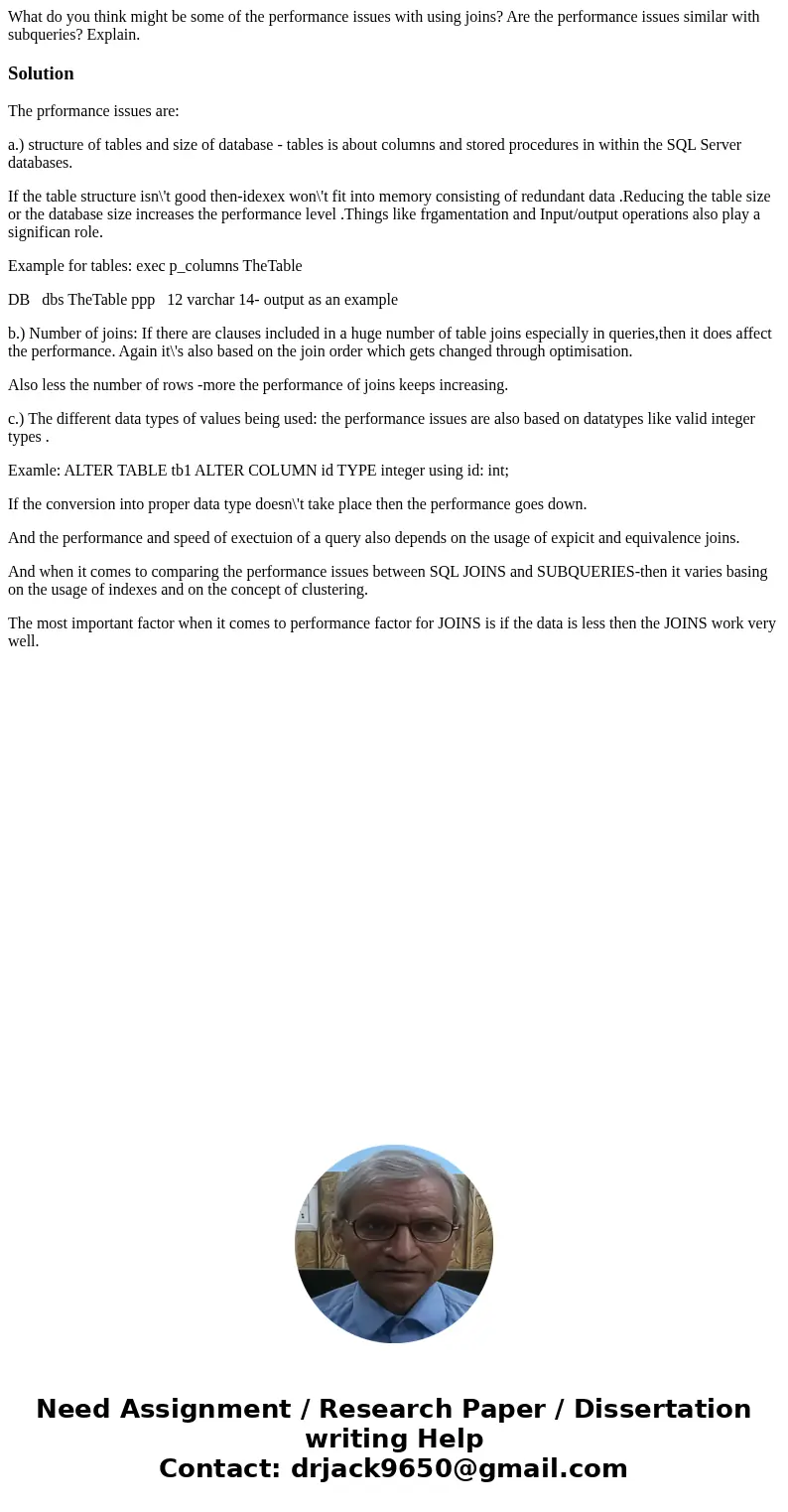What do you think might be some of the performance issues wi
What do you think might be some of the performance issues with using joins? Are the performance issues similar with subqueries? Explain.
Solution
The prformance issues are:
a.) structure of tables and size of database - tables is about columns and stored procedures in within the SQL Server databases.
If the table structure isn\'t good then-idexex won\'t fit into memory consisting of redundant data .Reducing the table size or the database size increases the performance level .Things like frgamentation and Input/output operations also play a significan role.
Example for tables: exec p_columns TheTable
DB dbs TheTable ppp 12 varchar 14- output as an example
b.) Number of joins: If there are clauses included in a huge number of table joins especially in queries,then it does affect the performance. Again it\'s also based on the join order which gets changed through optimisation.
Also less the number of rows -more the performance of joins keeps increasing.
c.) The different data types of values being used: the performance issues are also based on datatypes like valid integer types .
Examle: ALTER TABLE tb1 ALTER COLUMN id TYPE integer using id: int;
If the conversion into proper data type doesn\'t take place then the performance goes down.
And the performance and speed of exectuion of a query also depends on the usage of expicit and equivalence joins.
And when it comes to comparing the performance issues between SQL JOINS and SUBQUERIES-then it varies basing on the usage of indexes and on the concept of clustering.
The most important factor when it comes to performance factor for JOINS is if the data is less then the JOINS work very well.

 Homework Sourse
Homework Sourse